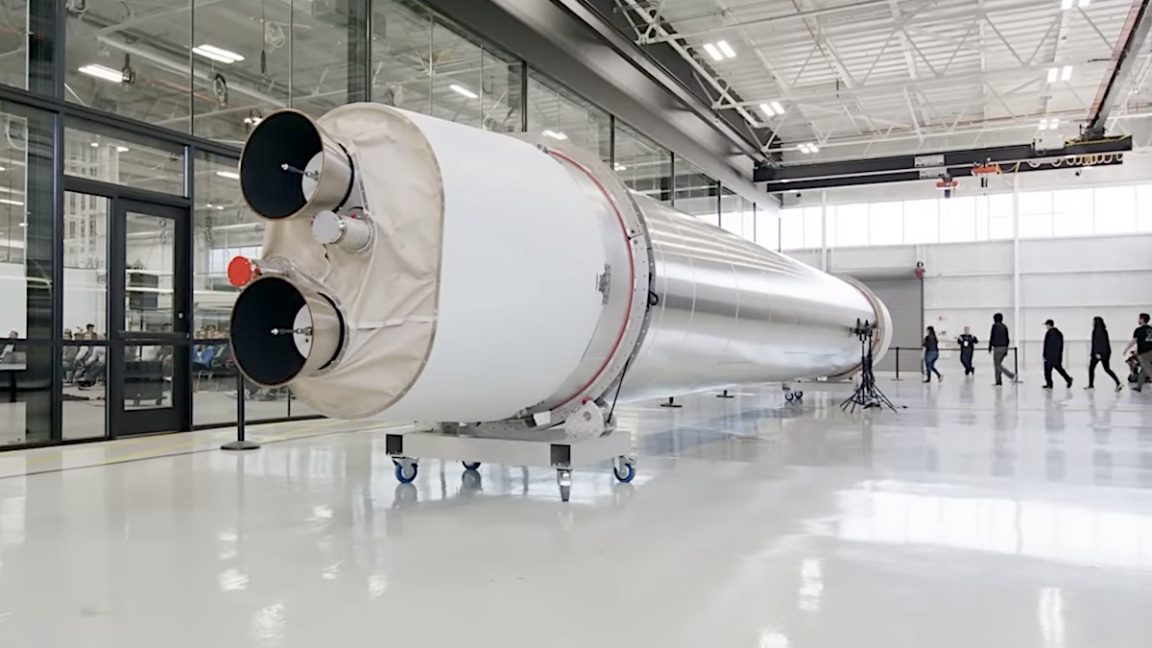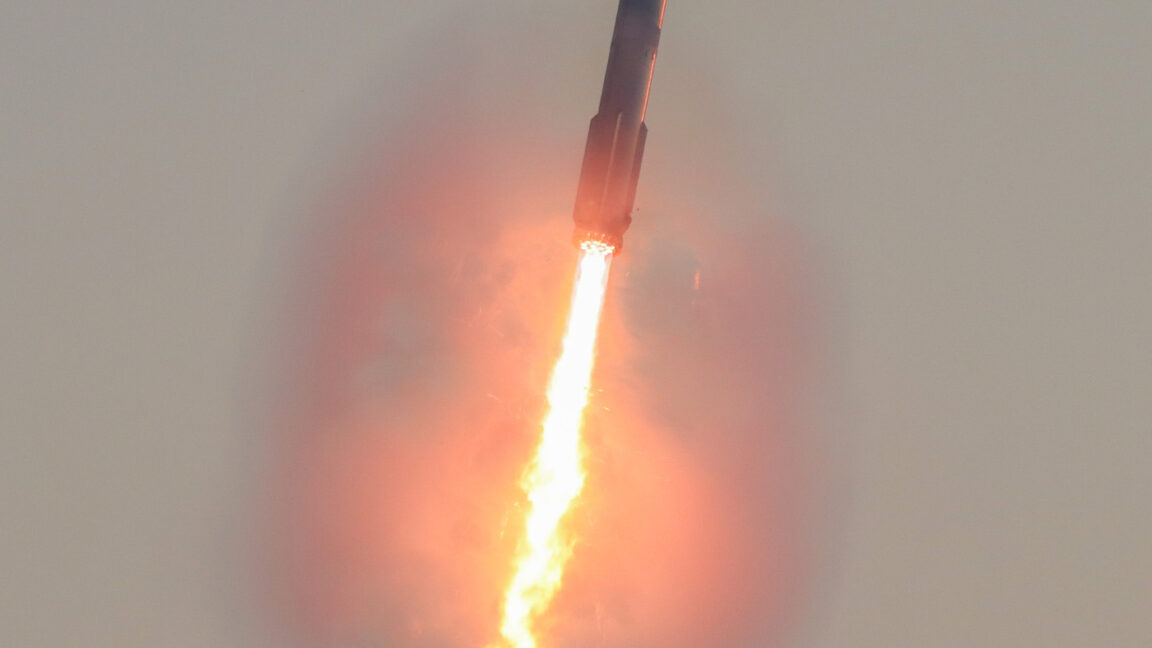On Wednesday morning, a surprising email popped into my inbox with the following subject line: "Astra announces Department of Defense contract valued up to $44 Million." I had to read it a second time to make sure I got it right. Astra, the launch company? Astra, whose valuation went from $2.6 billion to $25 million after a series of launch failures? Astra, the company that was taken private in July at 50 cents a share? Yes, it was that Astra. This was curious, indeed. To get some answers, I spoke with the cofounder of Astra, Chris Kemp, who remains the company's chief executive. "If I have learned anything, it's that you just don't give up," Kemp said. "You know, if you give up easily, this is not the place to be. Fortunately, I am surrounded by a team that has chosen not to give up."
Rocket 4 becomes more real
I'll be frank: When Kemp and his co-founder, Adam London, took Astra private this summer, I never expected to hear from the company again. Astra certainly was not the first launch company to fail, and it won't be the last. But it is the first to seemingly resurrect itself in such a dramatic way. To be clear, Astra is not back yet. The company remains in the phase of building and testing rocket stages and engines and does not have a launch vehicle ready to go. Its new booster, Rocket 4, will launch no earlier than the fourth quarter of 2025, Kemp said. (That date should probably be viewed with some skepticism). The company has previously discussed Rocket 4, which is intended to carry 600 kg to low-Earth orbit, as far back as August 2022. But at the time, most of the launch industry, including this reporter, shrugged and moved along. After all, the company's smaller vehicle, Rocket 3, failed on five of its seven orbital launch attempts. The general sentiment was that the new rocket would never fly. However, even as Astra's finances worsened and the company had to stave off bankruptcy by being taken private, not everyone dismissed the vision. In April 2023, the US Space Force awarded a task order for Rocket 4 to launch the STP-S29B mission. That was interesting, but it was just a single data point. Then came this week's announcement that the US Department of Defense's "Defense Innovation Unit" had awarded a grant worth up to $44 million to Astra for a "tactically responsive launch system." The bulk of that money has not yet been paid and will be based on milestones. The initial, guaranteed value of the contract is a little over $2 million. Additional payments will be awarded for the development of Rocket 4 and then progress toward operational missions. Still, the contract proved that someone, somewhere, still believed in Astra.
Responsive launch
The money is important, but more important is the signal sent to potential investors that Astra may actually become a viable entity once again. In particular, defense officials are interested in Astra's ongoing efforts to develop a mobile launch capability by which the rocket can be delivered to a concrete launch pad in two cargo containers and the ground support equipment and consumables in five additional containers by barge, train, or truck. "What we're doing with this thing is really important for our country," Kemp said. "No one else is doing a tactical mobile launch system. So if that's going to exist in America in the next 10 years, we're the only team that is going to do that. And I think investors understand that, which is why they invest in us. And I know our customers understand that, which is why they keep giving us contracts." The real question is whether investors will, in fact, invest in Astra again. Several years back, the company's early investors fared well because Astra went public in 2021, and they were able to cash out. (Kemp said he never sold any of his shares and invested proceeds from the $0.50 shares he owned when Astra was taken private back into the company). Kemp is courting new investors and seeking $50 million in a series B round of funding. The company presently has about 150 employees, the majority of which are working on Rocket 4. According to a copy of the investor deck reviewed by Ars, the company is targeting four different launch markets: megaconstellation deployment, megaconstellation maintenance, unique orbits, and tactical point-to-point delivery and hypersonics. Astra intends to launch once next year and four times in 2026, ramping up to 31 annual launches by 2029. Astra plans to become profitable within two years from its launch and spacecraft engine business. At present, Astra is building a qualification tank for Rocket 4's upper stage and has recently completed qualification testing of its first-stage tank. The company is also preparing what the investor document refers to as an "Astra Version of Engine" for qualification testing. There has long been some intrigue about the main engine that Rocket 4 will use, and it is most commonly believed that Astra would buy engines from Firefly. But that no longer appears to be the case. "The first stage engine was qualified with the previous combustion chamber, but then that company was bought out by private equity and decided not to do business with it anymore," Kemp said. (Firefly was privately acquired AE Industrial Partners in February 2022.) "We have now designed our own first-stage engine, so we have a brand new combustion chamber that's 3D-printed. That's pure Astra IP (intellectual property), and that combustion chamber is being printed this quarter so that we can start testing with our fully Astra first-stage engine."
Skepticism warranted
It's totally reasonable to be skeptical about Astra. Kemp is an excellent salesman, but his record as a launch company chief executive is mixed. During Astra's initial incarnation, the company moved quickly, successfully reaching orbit in four years, far more quickly than any other private startup. Yet due to quality control issues, far more of the company's rockets failed than ever reached orbit. A multitude of satellites were lost. Kemp acknowledges that he's gotten some hard lessons and says he really has learned from those failures. Among the company's advisors today is Jim Maser, an experienced leader who served as president of Sea Launch and Pratt & Whitney for extended periods, as well as briefly at SpaceX. Maser is known for quality control in aerospace production. "I learned that you do not layer reliability in later; you have to start on day one," Kemp said. "If you want a reliable system, it starts with studying every way it can fail and doing the analysis and doing the work up front. And we didn't do that with Rocket 3." Kemp says his company is doing the work now. If Rocket 4 makes it to the launch pad—and what a comeback story that would be if it does—we'll find out if Astra really has put the work in.


